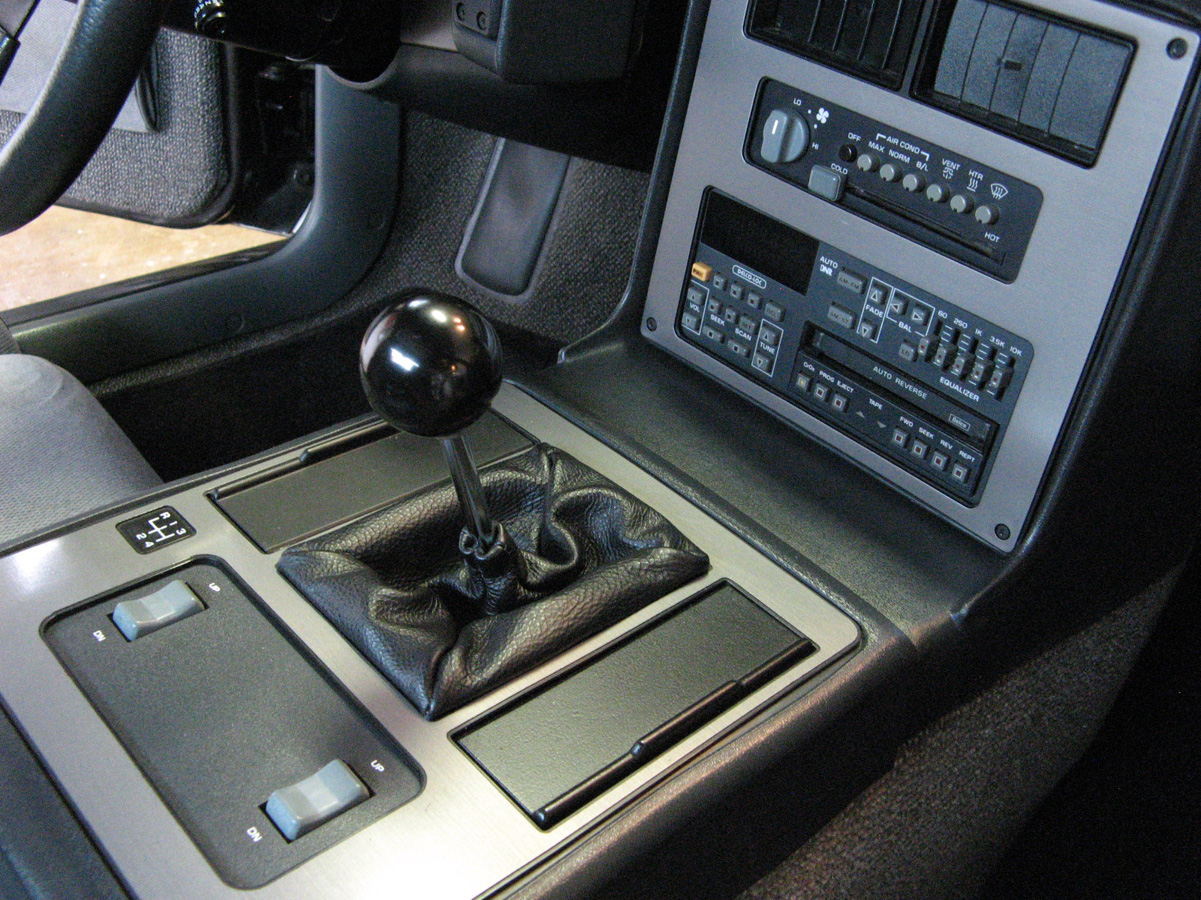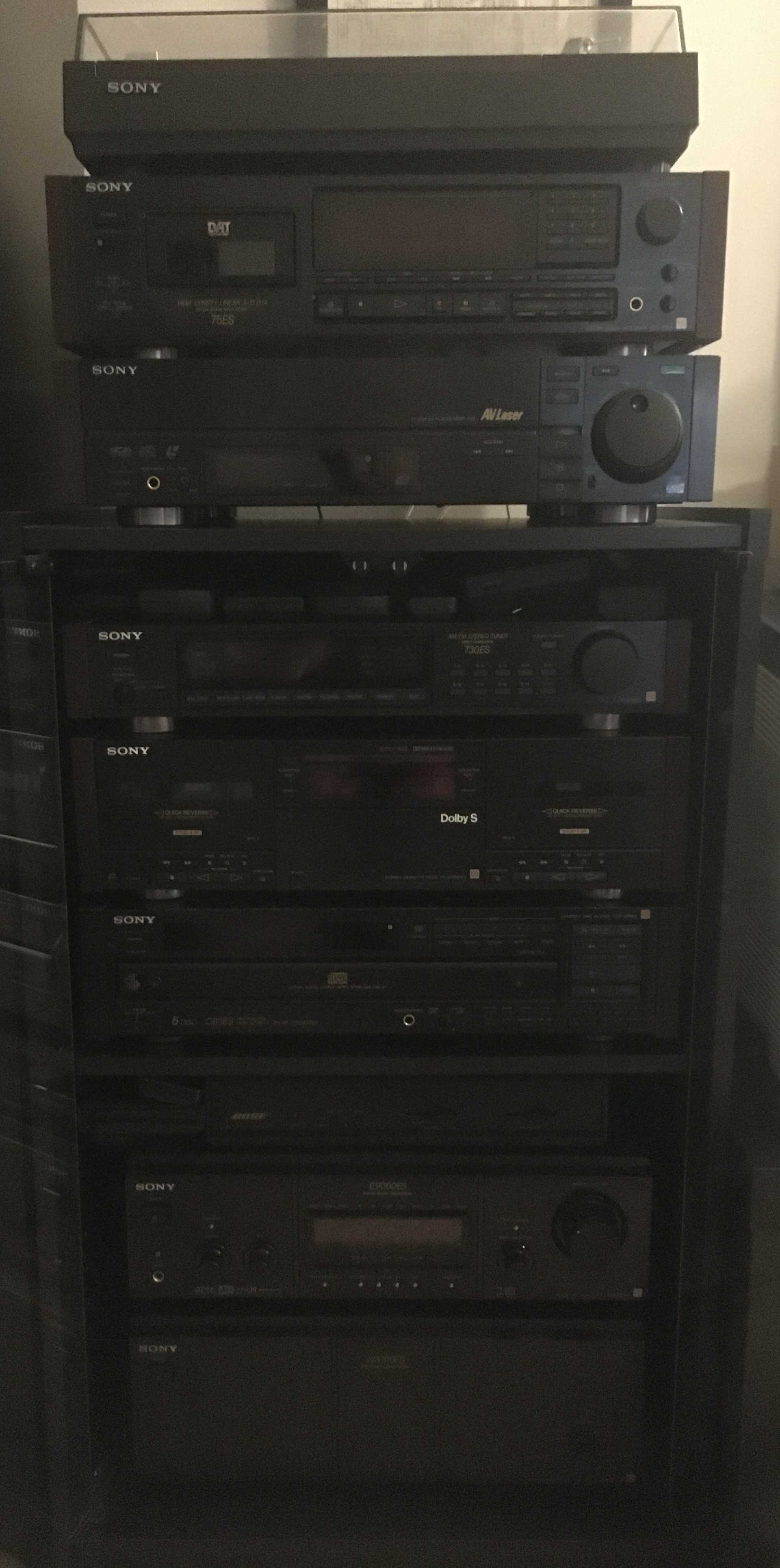
 
     |
| Delco DNR type (Page 1/3) |

|
katie80
|
OCT 28, 03:40 PM
|
|
|
what kind of NR do the fiero Delco radios have? I don't think it's Dolby because there's no Dolby logo anywhere. if I have a tape with Dolby NR on it, and I turn on DNR, it sounds very muffled. It only sounds right (even on tapes with Dolby), if I turn off the NR.
|
|

|
Patrick
|
OCT 28, 04:54 PM
|
|
Geez, I'm surprised anyone still messes around with audio cassette tapes. 
Even CDs are somewhat outdated now, although I still appreciate CD audio quality compared to MP3s (and to tapes).
However, in answer to your question... here's a link to probably more than you ever wanted/needed to know about audio tape noise reduction.
Dynamic Noise Reduction/DNR System 911[This message has been edited by Patrick (edited 10-28-2021).]
|
|

|
IMSA GT
|
OCT 28, 05:35 PM
|
|
That is Dynamic Noise Reduction which was something used in the 80's and 90's to get rid of "hiss". I think if you tried to use it with a tape that has Dolby Noise Reduction, that is exactly what you would get....a very muffled sound.
To be honest, even back in the day I could never get DNR to work. It always muffled and dropped the volume of my tapes. When you have 500 watts of Ozzy or AC/DC playing, the last thing I wanted was my music more quiet  [This message has been edited by IMSA GT (edited 10-28-2021).]
|
|

|
Skybax
|
OCT 28, 07:46 PM
|
|
| quote | Originally posted by katie80:
what kind of NR do the fiero Delco radios have? I don't think it's Dolby because there's no Dolby logo anywhere. if I have a tape with Dolby NR on it, and I turn on DNR, it sounds very muffled. It only sounds right (even on tapes with Dolby), if I turn off the NR. |
|
Funny you would bring this up, I just read an article last week on this, here is a snip that touches on that...
"Unfortunately 90% of decks sold after the mid 80’s are total junk.
Let’s take for example the Tandberg 3014 sold from 1982 to 1985. At the time it was being marketed as a $1,395 cassette deck equality to four grand today.
It has a frequency response of 18Hz to 23kHz, a signal to noise ratio of 75dB. We are able to get such good specs because of what is called analog noise shaping. Otherwise known as Dolby Noise Reduction, and later on improved DBX.
First off it is completely inaccurate to compare analog noise reduction and analog distortion to digital as they work in completely different ways. First let’s talk about analog noise reductions like Dolby. Dolby works sort of like a form of noise shaping. It can be considered a form of compression like how low pass filters are used but a little more complicated than that. I give you this graph that showcases how noise shaping can improve signal to noise ratio.
At higher speeds such as 15 IPS and 30 IPS you have a lot more room before it distorts. A pro recording studio only needed 20dB on a VU meter. However when you slow down the tape to 1 7/8 IPS, your tape now more easily distorts. Since cassettes have much thinner tracks as well the distortion does not sound as pleasant to the ears, so cassette deck manufactures were about to get around this by significantly increasing the dynamic headroom to avoid distortion entirely through the use of noise shaping technologies.
You can see it increases signal to noise ratio and thus increase dynamic range. It increases signal strength of higher frequencies and compensates. DBX and XDR maintain the extraordinary high frequency headroom which Dolby sometimes does not.
Both Dolby and DBX are nonlinear encode/decode processes. When a deck is calibrated properly, decode results in a perfectly linear end-to-end system. In practice, however, small deviations in tape tracking, head alignment and level calibration between decks always exist, resulting in less than perfect operation. The result was often a decrease in high frequency fidelity. DBX works by compressing the dynamic range of the signal during recording process and then expanding by the same ratio on playback. Dolby brings up high frequency during recording and reduces it during playback. For this reason the drawback is that the recorded cassette only sounds good on the deck that was recorded on especially DBX. For that reason many opt not using Dolby on decks that already have good enough signal to noise ratio to begin with for the drawbacks of tapes sounding “lifeless” and the fix is DBX but then it can only be played on the same deck it was recorded on. Great for master tapes though."
| quote | Originally posted by Patrick:
Geez, I'm surprised anyone still messes around with audio cassette tapes. 
Even CDs are somewhat outdated now, although I still appreciate CD audio quality compared to MP3s (and to tapes).
|
|
I do!
Actually, similar to vinyl records the cassettes have better dynamic range, signal to noise ratio, and frequency response than MP3 and CD.
Problem is often times the cassette decks/heads and/or cassettes themselves are junk so they sound like junk.
A good quality deck and good quality tape through good quality speakers sound great.
Occasionally I will record on a quality NOS Maxell tape to play in the Fiero for nostalgia, even though my late 80's UT4 STE deck is average at best.
 [This message has been edited by Skybax (edited 10-28-2021).]
|
|

|
RWDPLZ
|
OCT 28, 08:00 PM
|
|
| quote | Originally posted by Patrick:
Geez, I'm surprised anyone still messes around with audio cassette tapes. 
|
|
 My Fiero still has an Eclipse 4502 Headunit, it was their top of the line cassette deck. My Fiero still has an Eclipse 4502 Headunit, it was their top of the line cassette deck.

Plus THIS in the house (Sony TC-WR901ES Cassette Deck)

|
|

|
Patrick
|
OCT 28, 08:19 PM
|
|
| quote | Originally posted by Skybax:
Actually, similar to vinyl the cassettes have better dynamic range, signal to noise ratio, and frequency response than MP3 and CD.
|
|
Audio tape cassettes... better than CD?  Sorry, I don't believe that for a second. Where are you getting your specs from? Sorry, I don't believe that for a second. Where are you getting your specs from?
Sure, a Nakamichi Dragon may sound pretty good  ... but CD audio quality beats cassette tapes hands down. And let's not even discuss the crap quality of commercially made pre-recorded cassette tapes churned out and recorded at double-speed. Absolute garbage! ... but CD audio quality beats cassette tapes hands down. And let's not even discuss the crap quality of commercially made pre-recorded cassette tapes churned out and recorded at double-speed. Absolute garbage! 
|
|

|
RWDPLZ
|
OCT 28, 09:36 PM
|
|
| quote | Originally posted by Patrick:
Audio tape cassettes... better than CD?  Sorry, I don't believe that for a second. Where are you getting your specs from? Sorry, I don't believe that for a second. Where are you getting your specs from?
Sure, a Nakamichi Dragon may sound pretty good  ... but CD audio quality beats cassette tapes hands down. And let's not even discuss the crap quality of commercially made pre-recorded cassette tapes churned out and recorded at double-speed. Absolute garbage! ... but CD audio quality beats cassette tapes hands down. And let's not even discuss the crap quality of commercially made pre-recorded cassette tapes churned out and recorded at double-speed. Absolute garbage!  |
|
Better than CD? No. I've transferred CD's to metal Type IV tapes on good cassette decks, and they were so good you couldn't tell the difference, but never heard a tape that was BETTER than CD.
|
|

|
katie80
|
OCT 29, 06:11 PM
|
|
| quote | Originally posted by Patrick:
Geez, I'm surprised anyone still messes around with audio cassette tapes. 
Even CDs are somewhat outdated now, although I still appreciate CD audio quality compared to MP3s (and to tapes).
However, in answer to your question... here's a link to probably more than you ever wanted/needed to know about audio tape noise reduction.
Dynamic Noise Reduction/DNR System 911
|
|
tapes are more authentic to the fiero than a CD would be. thank you for the link.
|
|

|
katie80
|
OCT 29, 06:12 PM
|
|
| quote | Originally posted by IMSA GT:
That is Dynamic Noise Reduction which was something used in the 80's and 90's to get rid of "hiss". I think if you tried to use it with a tape that has Dolby Noise Reduction, that is exactly what you would get....a very muffled sound.
To be honest, even back in the day I could never get DNR to work. It always muffled and dropped the volume of my tapes. When you have 500 watts of Ozzy or AC/DC playing, the last thing I wanted was my music more quiet 
|
|
it really sounds awful. I just got this deck working again and was listening to something and must've pressed the button without realizing. I turned it off and it was like a completely different recording of the song.
|
|

|
katie80
|
OCT 29, 06:19 PM
|
|
|
    
  |
|















